
Mexican immigrant-turned-congresswoman blasts Dem claims Texas redistricting hurts Hispanic vote
Entities mentioned:
- Mayra Flores: Pride, Righteousness, Loyalty
- Republican Party: Power, Control, Competitive spirit
- Democratic Party: Power, Control, Justice
- Donald Trump: Influence, Power, Legacy
- Vicente Gonzalez: Power, Ambition, Professional pride
- Lloyd Doggett: Legacy, Self-preservation, Professional pride
- Gregorio Casar: Justice, Ambition, Moral outrage
- Chip Roy: Power, Competitive spirit, Loyalty
Article Assessment:
Credibility Score: 65/100
Bias Rating: 70/100 (Lean Right)
Sentiment Score: 55/100
Authoritarianism Risk: 40/100 (Generally Democratic)
Bias Analysis:
The article leans right, primarily featuring Republican perspectives and critiques of Democratic positions. While it includes some opposing viewpoints, the narrative favors conservative interpretations of the redistricting issue and Hispanic voter trends.
Key metric: Voter Representation and Engagement
As a social scientist, I analyze that this article highlights the complex interplay between demographic shifts, political realignment, and redistricting in Texas. The redistricting process is presented as a contentious issue, with Republicans claiming it better represents the changing political landscape, particularly among Hispanic voters, while Democrats argue it dilutes minority representation. This situation reflects broader national trends of changing party affiliations among minority groups and the ongoing debate over fair representation in the electoral system. The article suggests a potential shift in Hispanic voting patterns towards the Republican Party, which could have significant implications for future elections and party strategies. However, the conflicting interpretations of the redistricting's impact underscore the challenges in balancing demographic representation with political interests.

Epstein estate hit with new House subpoena for 'client list,' call logs
Entities mentioned:
- House Oversight Committee: Justice, Duty, Influence
- James Comer: Ambition, Duty, Influence
- Jeffrey Epstein: Power, Control, Greed
- Alexander Acosta: Self-preservation, Duty, Professional pride
- Ghislaine Maxwell: Self-preservation, Loyalty, Power
- Bill Clinton: Self-preservation, Legacy, Influence
- Hillary Clinton: Self-preservation, Power, Influence
- William Barr: Duty, Professional pride, Loyalty
Article Assessment:
Credibility Score: 75/100
Bias Rating: 55/100 (Center)
Sentiment Score: 35/100
Authoritarianism Risk: 25/100 (Generally Democratic)
Bias Analysis:
The article presents multiple perspectives and includes statements from both Republican and Democratic representatives. While it leans slightly right by giving more space to Republican viewpoints, it still maintains a relatively balanced approach.
Key metric: Public Trust in Government Institutions
As a social scientist, I analyze that this article highlights a significant expansion of the House Oversight Committee's investigation into Jeffrey Epstein's case, which could potentially impact public trust in government institutions. The bipartisan nature of the initial investigation, followed by partisan disagreements, reflects the complex political dynamics surrounding high-profile cases. The subpoenas for various high-ranking officials and the estate's documents indicate a comprehensive approach to uncovering potential mismanagement or ethical violations. This increased scrutiny could either restore public confidence by demonstrating accountability or further erode trust if the investigation is perceived as politically motivated or inconclusive.
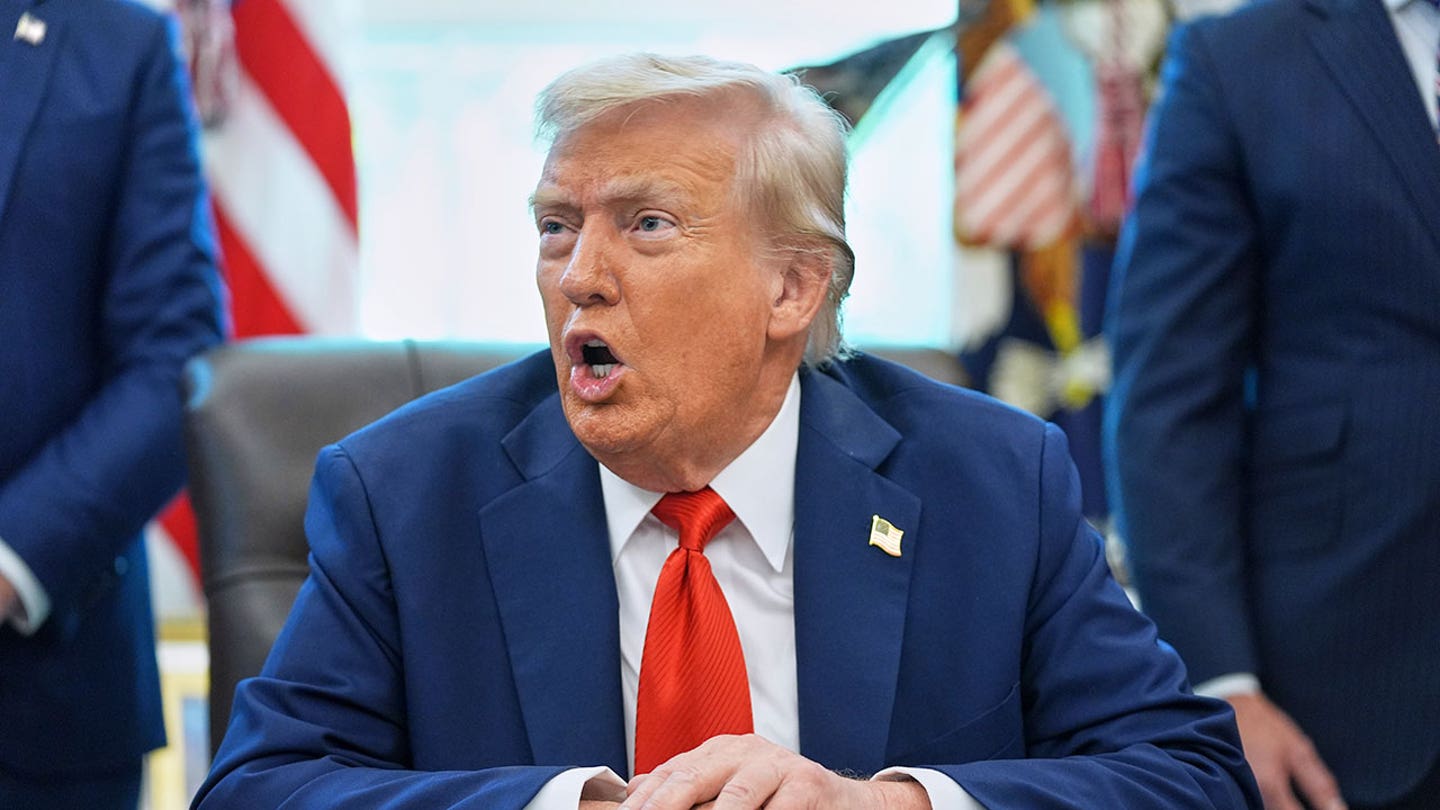
Trump opens door to 600,000 Chinese students amid Beijing trade talks
Entities mentioned:
- Donald Trump: Power, Control, Influence
- China: Power, Competitive spirit, Influence
- Marco Rubio: Security, Wariness, Duty
- Xi Jinping: Power, Influence, Control
- Joe Biden: Legacy, Influence, Duty
Article Assessment:
Credibility Score: 70/100
Bias Rating: 55/100 (Center)
Sentiment Score: 60/100
Authoritarianism Risk: 35/100 (Generally Democratic)
Bias Analysis:
The article presents multiple viewpoints and includes direct quotes, suggesting an attempt at balanced reporting. However, there's a slight lean towards framing Trump's decisions positively, particularly in contrast to the previous administration.
Key metric: US-China Economic Relations
As a social scientist, I analyze that this article highlights a significant shift in the Trump administration's approach to Chinese students in the US, potentially signaling a thaw in US-China relations. The decision to allow 600,000 Chinese students into the US appears to be a strategic move in the context of ongoing trade negotiations. This policy shift could have substantial economic implications, as international students contribute significantly to the US economy. However, it also raises questions about national security concerns previously expressed by administration officials like Marco Rubio. The article suggests that Trump is prioritizing economic benefits over security concerns, which could impact future policy decisions regarding China. The mention of tariffs and trade talks indicates that economic considerations are at the forefront of US-China relations, with educational exchanges being used as a potential bargaining chip.

'We're going to bring it home': Trump commerce secretary shares what's next after Intel deal
Entities mentioned:
- Howard Lutnick: Professional pride, Duty, Influence
- Donald Trump: Ambition, Legacy, Power
- Intel: Competitive spirit, Greed, Recognition
- China: Power, Competitive spirit, Security
Article Assessment:
Credibility Score: 55/100
Bias Rating: 65/100 (Lean Right)
Sentiment Score: 70/100
Authoritarianism Risk: 35/100 (Generally Democratic)
Bias Analysis:
The article leans right due to its positive framing of Trump administration policies and its presentation on a typically conservative-leaning program. The language used, such as 'bring it home', appeals to nationalist sentiments often associated with right-wing politics.
Key metric: US Economic Competitiveness
As a social scientist, I analyze that this article suggests a strategic move by the Trump administration to bolster US economic competitiveness, particularly in the tech sector. The deal with Intel, a major US semiconductor company, appears to be part of a broader strategy to strengthen domestic technology production and reduce dependence on foreign suppliers, especially China. This move could potentially impact US economic competitiveness by fostering innovation, creating high-skilled jobs, and securing critical supply chains. However, the limited information provided makes it difficult to assess the full scope and potential effectiveness of these initiatives.

DC arrests surpass 1,000 as Trump-backed crackdown enters 12th homicide-free day
Entities mentioned:
- John Bolton: Revenge, Self-preservation, Indignation
- Donald Trump: Power, Recognition, Legacy
- FBI: Justice, Duty, Professional pride
- Vladimir Putin: Power, Control, Influence
- Pentagon: Security, Control, Professional pride
Article Assessment:
Credibility Score: 70/100
Bias Rating: 55/100 (Center)
Sentiment Score: 30/100
Authoritarianism Risk: 35/100 (Generally Democratic)
Bias Analysis:
The article presents multiple viewpoints, including critical perspectives of Trump's policies, but also includes Trump's actions without overtly positive or negative framing. While it leans slightly towards criticism, it maintains a relatively balanced approach by presenting factual information from various sources.
Key metric: International Relations and Diplomacy
As a social scientist, I analyze that this article highlights significant tensions in U.S. foreign policy, particularly regarding the Ukraine conflict. Bolton's critique of Trump's approach suggests a lack of coherence and strategy in diplomatic efforts, potentially weakening the U.S. position on the global stage. The reported FBI raid on Bolton's property adds another layer of complexity, indicating potential internal conflicts within the U.S. political establishment. This situation could have far-reaching implications for U.S. credibility in international negotiations and its relationships with allies. The article also touches on the delicate balance of power between different branches of government, particularly the executive and law enforcement agencies, which could impact the effectiveness of U.S. foreign policy implementation.
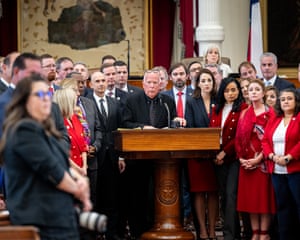
Obama calls California’s redistricting plan ‘a responsible approach’
Entities mentioned:
- Barack Obama: Influence, Legacy, Righteousness
- California: Justice, Fairness, Unity
- Republican Party: Power, Control, Self-preservation
Article Assessment:
Credibility Score: 70/100
Bias Rating: 40/100 (Lean Left)
Sentiment Score: 65/100
Authoritarianism Risk: 20/100 (Strongly Democratic)
Bias Analysis:
The article leans slightly left due to the positive framing of Obama's stance and the implicit criticism of partisan gerrymandering. However, it maintains a fairly neutral tone by focusing on the facts of Obama's statement rather than editorializing.
Key metric: Electoral Fairness and Representation
As a social scientist, I analyze that Obama's endorsement of California's redistricting plan highlights the ongoing national debate over fair representation and gerrymandering. This support from a former president lends credibility to non-partisan redistricting efforts, potentially influencing other states to adopt similar approaches. The focus on a 'responsible approach' suggests a push towards more equitable electoral maps, which could have significant implications for future election outcomes and the balance of power between parties. This development may contribute to increased public awareness and demand for electoral reform across the country.
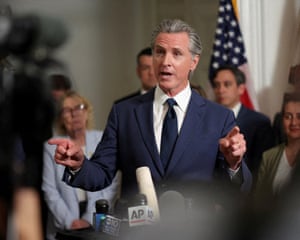
Federal judge orders closure of Trump’s ‘Alligator Alcatraz’ immigration jail
Entities mentioned:
- Donald Trump: Power, Control, Legacy
- Federal judge: Justice, Duty, Righteousness
- Immigration and Customs Enforcement (ICE): Control, Security, Duty
- Trump administration: Power, Control, Influence
- US military: Duty, Security, Obligation
- Pentagon: Security, Duty, Control
- ACLU: Justice, Freedom, Moral outrage
Article Assessment:
Credibility Score: 65/100
Bias Rating: 35/100 (Lean Left)
Sentiment Score: 30/100
Authoritarianism Risk: 65/100 (Authoritarian Tendencies)
Bias Analysis:
The article leans left in its framing, focusing on challenges to Trump administration policies and highlighting opposition. While it presents factual information, the selection of stories and language used suggests a critical stance towards the administration's actions.
Key metric: Immigration Enforcement Effectiveness
As a social scientist, I analyze that this article highlights significant tensions between the Trump administration's aggressive immigration policies and judicial oversight. The closure of the 'Alligator Alcatraz' immigration jail by a federal judge suggests a pushback against what may be perceived as overly harsh or potentially unconstitutional detention practices. This decision, along with other reported actions such as cutting California's sex-education funds over gender identity references and the military identifying 'hotels to avoid' due to protests, indicates a pattern of resistance to the administration's policies from various sectors including the judiciary, state governments, and civil society. The involvement of the Pentagon in asking civilian employees to aid ICE deportations further underscores the administration's commitment to its immigration agenda, potentially blurring lines between civilian and military roles in domestic law enforcement. This could have significant implications for the effectiveness and public perception of immigration enforcement efforts, potentially leading to increased polarization and legal challenges.

Trump targets Chicago and New York as Hegseth orders weapons for DC troops
Entities mentioned:
- Donald Trump: Power, Control, Influence
- Pete Hegseth: Loyalty, Duty, Security
- Pentagon: Control, Security, Obligation
- Ukraine: Self-preservation, Justice, Freedom
- Zohran Mamdani: Ambition, Recognition, Influence
- Marjorie Taylor Greene: Moral outrage, Righteousness, Influence
- Bernie Sanders: Justice, Moral outrage, Influence
- Kilmar Ábrego García: Self-preservation, Fear, Security
- Gavin Newsom: Competitive spirit, Ambition, Recognition
- Arnold Schwarzenegger: Justice, Legacy, Influence
- Ghislaine Maxwell: Self-preservation, Loyalty, Fear
Article Assessment:
Credibility Score: 70/100
Bias Rating: 40/100 (Lean Left)
Sentiment Score: 35/100
Authoritarianism Risk: 45/100 (Mixed/Neutral)
Bias Analysis:
The article leans slightly left, evidenced by more coverage of Democratic figures and initiatives. While it includes some Republican perspectives, the framing tends to be more critical of conservative positions.
Key metric: Political Polarization Index
As a social scientist, I analyze that this article highlights increasing political polarization in the United States. The content spans various political issues, from immigration and foreign policy to electoral politics and social issues. Trump's continued influence on Republican politics is evident, while Democratic figures are positioning themselves in opposition. The mention of partisan redistricting, sanctuary city policies, and contrasting approaches to issues like the Gaza conflict and offshore wind farms underscore deep divisions along party lines. This polarization is likely to impact governance, policy-making, and social cohesion, potentially leading to increased gridlock and decreased ability to address national challenges effectively.
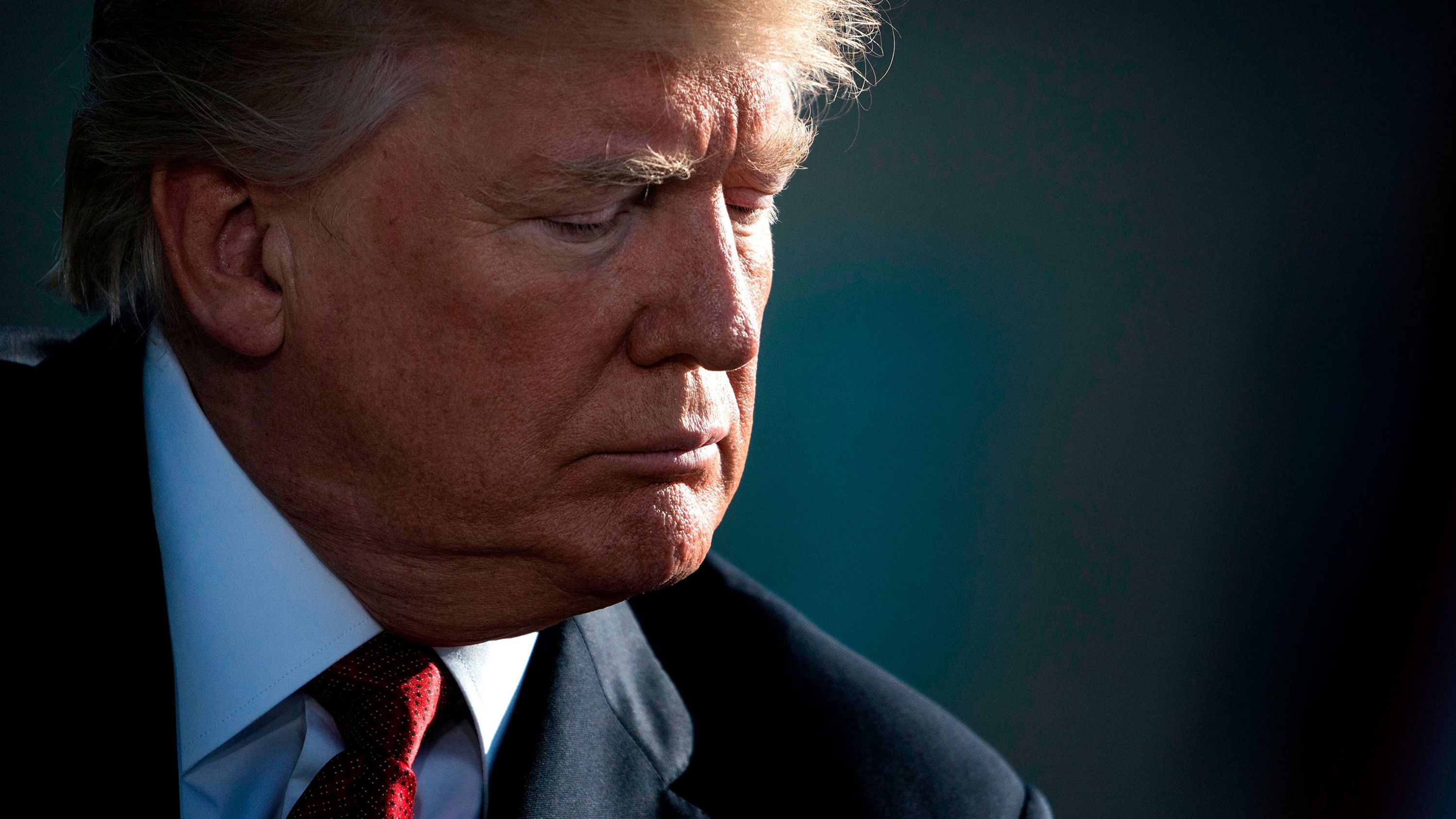
Gallery
Entities mentioned:
- Donald Trump: Power, Ambition, Revenge
- Kamala Harris: Ambition, Duty, Legacy
- Joe Biden: Legacy, Duty, Power
- Hillary Clinton: Ambition, Power, Legacy
- Michael Cohen: Loyalty, Self-preservation, Revenge
- Stormy Daniels: Recognition, Justice, Influence
- Jack Smith: Justice, Duty, Professional pride
- Fani Willis: Justice, Ambition, Professional pride
Article Assessment:
Credibility Score: 65/100
Bias Rating: 55/100 (Center)
Sentiment Score: 35/100
Authoritarianism Risk: 70/100 (Authoritarian Tendencies)
Bias Analysis:
The article presents a mix of factual information and potentially controversial claims without clear attribution. While it covers events from various perspectives, the tone and framing slightly favor a more dramatic narrative of Trump's comeback.
Key metric: Democratic Stability Index
As a social scientist, I analyze that this article depicts a significant shift in the American political landscape, with implications for democratic norms and institutions. Trump's re-election despite legal challenges and his subsequent actions suggest a weakening of traditional checks and balances. The dropping of federal cases and the disqualification of a district attorney in a state case indicate potential political interference in the justice system. The assassination attempt highlights the intense polarization and potential for political violence. These developments could lead to a decline in the Democratic Stability Index, as they represent a departure from established democratic norms and potentially signal a move towards more authoritarian governance styles.
- Read more about Gallery
- Log in to post comments
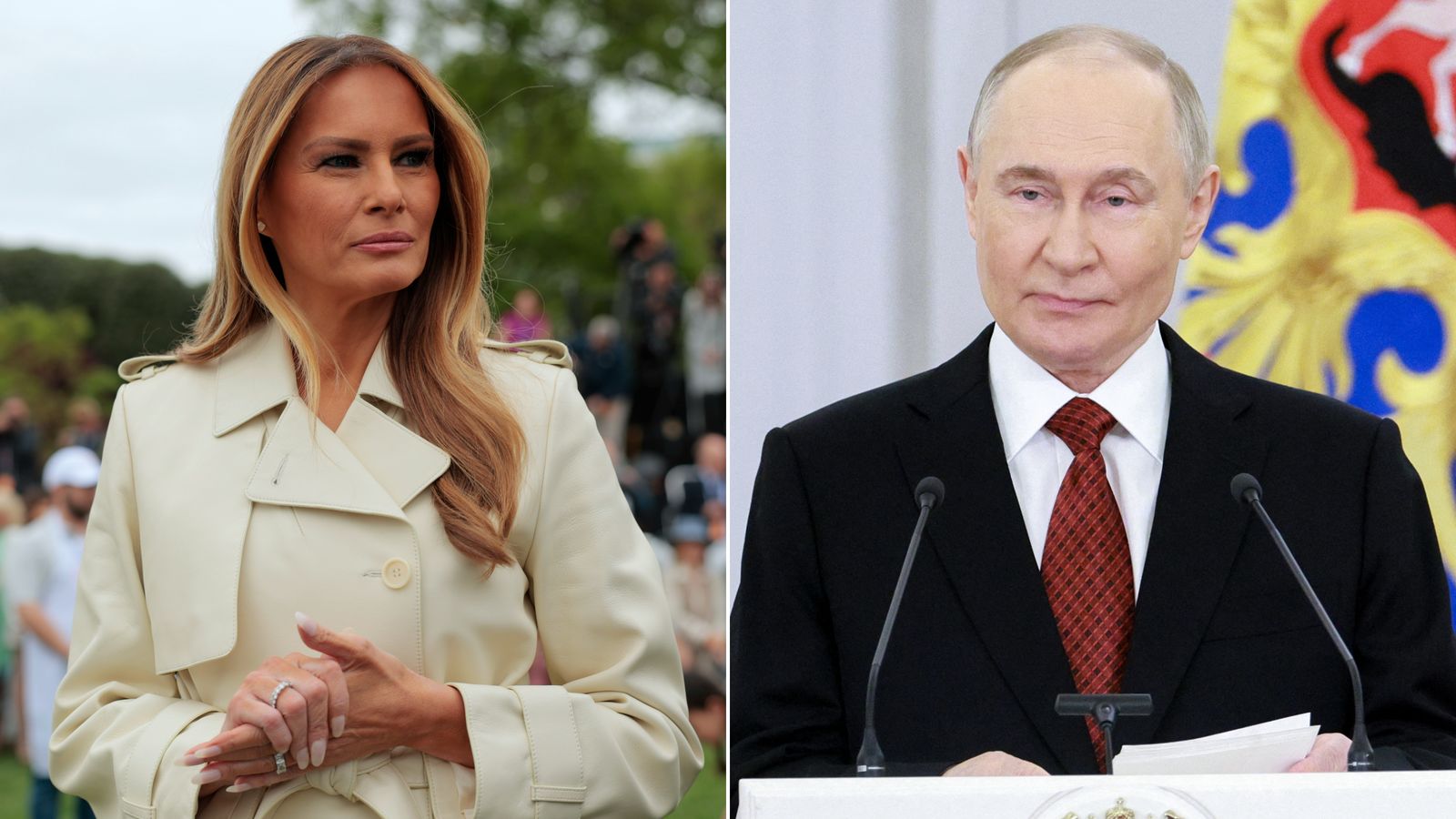
Privately influential but publicly absent, Melania Trump is picking and choosing her moments this term
Entities mentioned:
- Melania Trump: Influence, Legacy, Self-preservation
- Donald Trump: Power, Legacy, Control
- Vladimir Putin: Power, Control, Influence
- Volodymyr Zelensky: Unity, Security, Justice
Article Assessment:
Credibility Score: 75/100
Bias Rating: 55/100 (Center)
Sentiment Score: 50/100
Authoritarianism Risk: 30/100 (Generally Democratic)
Bias Analysis:
The article presents a balanced view of Melania Trump's role, including both positive and critical perspectives. It relies on named sources and provides context, though some anonymous sources are used, which slightly reduces its centrism.
Key metric: US Diplomatic Influence
As a social scientist, I analyze that Melania Trump's behind-the-scenes influence and selective public engagement represent a unique approach to the first lady role. Her focus on children's issues and her background from communist Yugoslavia lend credibility to her diplomatic efforts, particularly regarding the Ukraine conflict. However, her limited public presence and reduced staff compared to previous first ladies suggest a deliberate strategy to maintain privacy and control over her image. This approach may impact the traditional soft power wielded by first ladies in US diplomacy, potentially reducing overall diplomatic influence but allowing for targeted, high-impact interventions on specific issues.